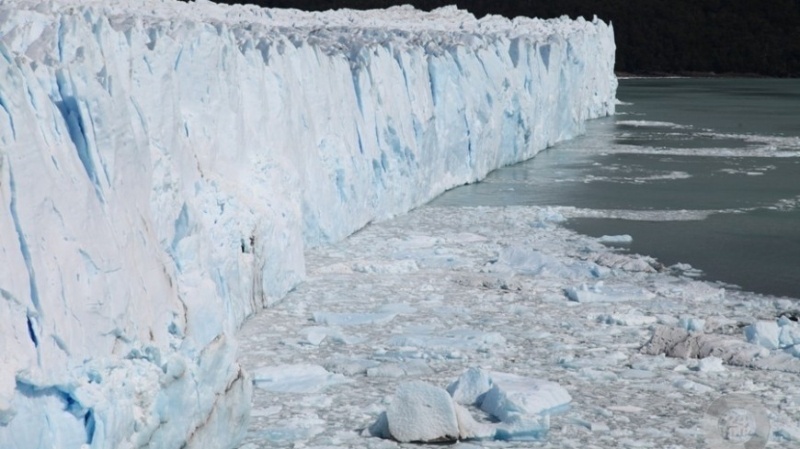It has been an extremely rough summer in Greenland. Back in June, we shared a story about how the country had lost 2 billion tons of ice in a single day, which at the time was an alarming number. But, things have only gone from bad to worse over the past few months as climate change has brought on unprecedented heatwaves to Europe and much of the rest of the world. So much so, that it now looks like July may be the hottest month ever recorded. That has had a devastating effect on the ice fields that cover much of Greenland, which has also seen its fair share of wildfires this year as well –– something that was extremely rare in the past.
The unusually warm summer has caused steady melt off in Greenland’s glacial ice for the past several months, but last week it hit a dubious new record. On Thursday, August 1, researchers say that 12.5 billion tons of ice melted in a single day. That’s the greatest reduction in ice ever recorded, breaking a previous record of 10 billion tons that was set back 2012, which was a major cause for alarm at that time as well.
Ted Scambos of the National Snow and Ice Data Center, told the Washington Post that the method for measuring the amount of ice that has melted comes from a combination of satellite data, computer models, and other information. He says,“This model, which uses weather data and observations to build a record of ice and snowfall, and net change in mass of the ice sheet, is remarkably accurate. I would accept the result as fact. 12.5 billion tons [lost] in one day, and the highest single-day total since 1950.” That 1950 date is significant in that it is as far back as our observational data goes, meaning that since humans have started paying attention, this is by far the most ice melt-off we’ve seen.
Even more alarming, in that climatologists have been predicting that the ice melt off would occur for years now, so this isn’t completely unexpected. That said, most climate change models didn’t see Greenland facing this severe of a change until 2070, which puts us more than 50 years ahead of schedule. Researchers say it is too early to predict whether or not 2019 will exceed 2012 in terms of total melt off, but it does seem evident that the warming trend is accelerating the process and that the impact of the ice fields disappearing will be rising sea levels around the world. Something that could impact millions.
Meanwhile, a wildfire located near the village of Sisimiut in southwest Greenland burned for much of July before fizzling out last week. The same location saw a similar wildfire two years ago, making worldwide headlines at the time. These kinds of fires have been an unusual anomaly in Greenland’s past, due in no small part to the cold temperatures, high levels of moisture, and general wet conditions. Due to its remote location, it is unclear how the blaze got started, but it was located in an area that is typically known as a fen or marshland. But this summer has been so warm and dry that it allowed such a fire to not only start, but spread too.
Greenland hasn’t been alone in seeing wildfires this year either. Siberia and Alaska have both experienced widespread fires too. The smoke and particulates created by these fires can drift a long way and add to the melting of snow and ice too. The most important take away however is that conditions are dry throughout the Arctic this summer, which doesn’t bode well in general either.
The last time I posted about the melt off in Greenland, someone helpfully pointed out that even at these accelerated rates, it would take hundreds of years for the glaciers in Greenland to disappear. That isn’t really the point however, as once again the ice fields are the canary in the coal mine when it comes to climate change. All of Greenland’s ice doesn’t have to melt in order for this to turn into a disaster of global proportions. Considering how that melt off seems to be picking up steam, we may already be beyond the tipping point. So if the argument was that we don’t need to do anything about this, because it’ll be centuries before it’s a problem, then I guess you’re right. Whether or not we’re around as a species to pat ourselves on the back for surviving until then remains to be seen.
- Gear Review: The Xero Scrambler Mid is an Ultralight Hiking Shoe for Spring - March 1, 2023
- Gear Review: Yeti Roadie 48 Wheeled Cooler - August 18, 2022
- Kristin Harila Continues Pursuit of 8000-Meter Speed Record - August 16, 2022
